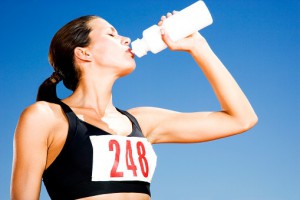 Summer is in full swing, so most of our time will be spent outside doing various activities. However, there are many health concerns to consider.
Summer is in full swing, so most of our time will be spent outside doing various activities. However, there are many health concerns to consider.
Here are some summer health concerns and how to prevent them:
- Dehydration
Up to 78% of the human body is made of water, when it doesn’t get enough of it, it can’t function properly. In high heat, dehydration can become severe and fatal.
To prevent dehydration, it is important to stay hydrated. You can do this by drinking water and eating water-rich foods. Staying properly hydrated can also prevent kidney stones.
- Sunburns
A sunburn is when UV or ultraviolet rays from the sun cause a radiation burn on the skin. Sunburns can contribute to premature aging of skin and skin cancer. It can also lead to dehydration, sun poisoning, and infection from severe burns.
To prevent sunburn, wear sunscreen containing titanium oxide or zinc oxide every day, even on overcast days. Make sure to cover your entire body, including your ears, eyelids, lips, scalp, and if exposed, the top of your feet.
- Heat illnesses
Spending time in the sun doesn’t only bring the risks of sunburn and dehydration. It also brings the risk of heat illnesses which include:
- Heat rash- a red stinging rash that develops when sweat gets trapped in your glands.
- Heat cramps- are painful muscle cramps that occur when you sweat so much that your body loses salts and fluids.
- Heat exhaustion- is when your body can’t cool itself through sweating. If it’s not treated, it can quickly turn into heatstroke.
- Heatstroke- or sunstroke, is when your body temperature climbs to dangerous levels. It’s the most severe heat-related illness and can be fatal.
To prevent heat illnesses, limit the time you spend outdoors. Also, take any symptoms you observe in yourself and others seriously.
- Bee stings and insect bites
Since insects are more active during the summer, there’s a higher risk of encountering them. Especially for:
- Bee stings
- Mosquito bites
- Tick bites
- Ant bites
To prevent bugs from stinging or biting you, wear an insect repellent with the active ingredients DEET or picaridin. Other ways to prevent stings and bites include:
- Avoid using scented products.
- Drain any standing water.
- Put on protective clothing.
- Don’t leave any food uncovered outside.
- Drowning
We want to spend more time near water to cool off as temperatures rise. However, it is important to follow proper safety precautions to avoid drowning risks.
Here are some ways to prevent drowning risks:
- Learn CPR
- Use drain covers on pool drains.
- Wear life jackets
- Sign up for swimming lessons.
- Unsafe summer foods
Everybody loves a good summer barbecue or cookout, but sometimes the food we eat doesn’t always love us back.
The smoking process that gives smoked meats their flavor also creates harmful substances called polycyclic aromatic hydrocarbons or PAHs and heterocyclic amines or HCAs. The National Cancer Institute warns that PAHs and HCAs are mutagenic, meaning they can cause changes to your DNA that put you at risk for certain types of cancer.
You can prevent ingesting these harmful substances by using liquid smoke as an alternative marinade for your meats.
Foodborne illness can be a concern for cookout food as well. This is the case for food left out or leftover sitting in the “temperature danger zone” of 40 to 140 degrees Fahrenheit. These temperatures allow bacteria to grow that can make you sick.
You can prevent foodborne illness by cooking meats to a safe temperature and throwing any food that has sat out too long in the trash.
- Seasonal allergies
Pollen is a huge problem in the summer as the weather gets warmer and trees, grass, and flowers pollinate.
To prevent seasonal allergies, try taking allergy medications before the season starts so your body can build its defense.
These preventative measures can help you enjoy your summer and keep you safe.
If you or someone you are with are experiencing an emergency, call 911 immediately.
All content of this newsletter is intended for general information purposes only and is not intended or implied to be a substitute for professional medical advice, diagnosis or treatment. Please consult a medical professional before adopting any of the suggestions on this page. You must never disregard professional medical advice or delay seeking medical treatment based upon any content of this newsletter. PROMPTLY CONSULT YOUR PHYSICIAN OR CALL 911 IF YOU BELIEVE YOU HAVE A MEDICAL EMERGENCY.



